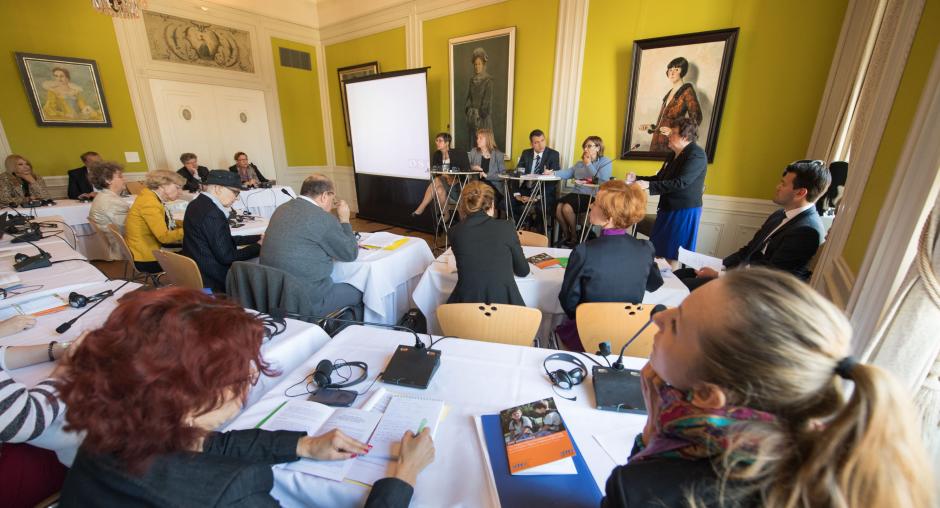Preservation, inspiration and dialogue: Twenty years of The Hague Recommendations Regarding the Education Rights of National Minorities

In promoting education as a tool for conflict prevention, The Hague Recommendations Regarding the Education Rights of National Minorities have offered a toolkit for preservation, inspiration and dialogue, said OSCE High Commissioner on National Minorities (HCNM) Astrid Thors as she opened an expert meeting on 21 April 2016 at The Hague to mark two decades of these ground-breaking Recommendations.
Thors said that the Recommendations had been instrumental in preserving minority education during times of transition and education reforms, and an inspiration in calling for a proactive approach by OSCE participating States towards a progressive yet realistic realization of minority rights in education. She said the Recommendations have also encouraged the involvement of parents and minorities in formulating policies as well as providing a framework for dialogue that is useful for both the participating States and national minorities.
Discussions during the meeting focused on reforms to the education sector and accommodating diversity, language in multilingual educational contexts, and respect for diversity and pluralism in education content.
Participants agreed on the need to further share best practices, promote broader engagement and to adapt to changing environments.
Particularly emphasized was the need for teachers to receive adequate training to be equipped to manage multilingual and multicultural classrooms and for the foundations of education systems to be solid enough to handle adversity, such as budget cuts and extensive reforms.
Acknowledging the role of education in fostering a sense of opportunity and belonging, experts said that the politicization of history is not conducive to conflict prevention. Instead, different views should be allowed as an increased level of historical knowledge and understanding will lead to historical empathy, which can in turn lead to a unifying feeling when the pain of the past is shared.
The experts agreed a set of recommendations for future work in the field of minority education rights, which will be published as follow up to this event.
The expert meeting was held a day after a HCNM-organized conference gathered 180 participants from 32 participating States to assess two decades of The Hague Recommendations. Among the participants of the conference were government officials, experts, teachers, education professionals, non-governmental actors and other local and international stakeholders active in the field of education, conflict prevention and peace-making.
